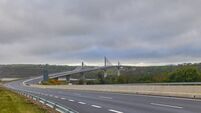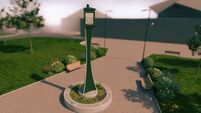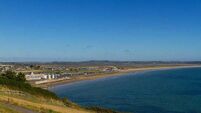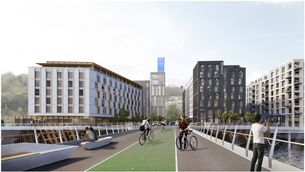Waterford bar to celebrate milestone 145 years in the same family
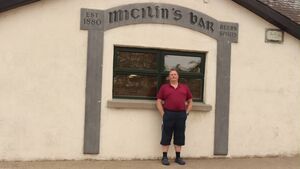
Current proprietor Joe Walsh outside Micliíns' Bar in Kilrossanty. Pic: Summer Venn-Keane
Nestled within the shadow of the Comeragh Mountains in one of the most picturesque areas of Waterford is the sleepy rural village of Kilrossanty.
However, within the village is a remarkable story of one family's historic links with the pub trade; a story that stretches back five generations, over 145 years.
Joe Walsh is the current proprietor of Micilin's Bar and his familial links to the pub go back to when his great-great-grandfather purchased the pub way back in 1880, in a very different Ireland.
Waterford News & Star met with Joe in the village to discuss his family's association with the bar and to talk about the anniversary celebrations which will take place over the June bank holiday weekend.
(To watch a video of the interview with Joe in the bar click here)
As we strolled through the graveyard located straight across from the pub, Joe referred to the bar's previous owner, Mary Callahan: "She died in 1875 and she had two sons, who pre-deceased her and we think they may have died around the time of the famine."
His own parents and other family members are buried in the cemetery.
"That lady owned the pub and it was then in 1880 that my great-great-grandfather, William Walsh, bought the pub," said Joe.
His great-great-grandfather was more commonly known as 'Bill Jack' Walsh and Joe said that when he bought it, he planned for his two daughters to take it over.
"He put two daughters in it but they eloped with two local men and then he put my father's grandfather in there - a man named Maurice Walsh," said Joe.
"So the original man was William Walsh, then there was Maurice Walsh - my father's grandfather - then there was my father, Michael, then there's me and then one of my sons, Darragh" he added.
"So, it's five generations of the one family and it's remained in the same family all that time."
While Joe acknowledged that's it's not necessarily the oldest pub in the country he commented: "It's definitely one of them and certainly one of the few that have remained in the same family, with the same family name, all that time. It was ever a pub and it's unique in that tradition because it's carried on."
"There are so many now today that are closing and being turned into apartments because people are not staying in the pub trade anymore," he said.
Joe said the challenges facing rural Irish pubs are immense and with that in mind it's among the reasons why he and his family can feel justifiably proud to be still in business and to be carrying on something that his direct forefathers started.
He himself is also employed in a business in Waterford City and said that's just the nature and reality of life in Ireland today.
"The life of the country pub, there's so much against it and the drink culture itself has changed," said Joe.
"There's not a living to be made in it anymore, not like it used to be."
Kilrossanty is in many ways the picture-postcard image of Ireland. A small rural village where passers-by greet each other with a cheery "hello" and life goes on at a pace that's just that bit more appealing than that of busier, larger urban areas.
However, for Joe, who will celebrate his 60th birthday this year, life in the village has changed a lot over the years.
"In this village we had three shops," he said.
"We had a shop in my mother's time, it's closed over 30 years now," he added. Then pointing to other locations on the village street he indicated where other shops and businesses once stood.
Within the confines of the current graveyard, in times gone by, were located a post-office and a shop but all that's changed.
"Where my parents are buried, that was where there was a post-office and a shop," said Joe.
"They knocked it 40 years ago and turned it into a graveyard."
"There was actually another pub here too - and it was only made known to me recently - Costen's but that's gone with years," he said.
"The only pub in the village now is Micilín's Bar," he added.
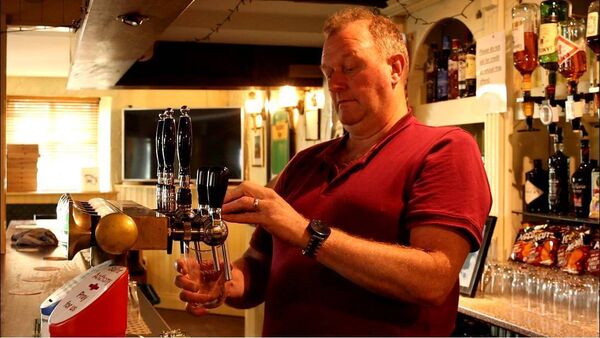
When Joe took over the business in 1989, it was a seven-day-a-week business but that's changed in the interim.
"It was seven days and was trading well but now it's Thursday to Sunday and I work in Bausch & Lomb as well," he said.
In addition to being a hostelry, the bar was also a safe house during the troubles in the 1920s and a man who arrived back following World War II, a man named Michael Sheehan, is buried in the village's old churchyard.
"My grandmother, Bridget Hassett, she took him in and looked after him and he's buried up there," said Joe.
"There is a lot of history after being associated with the bar and what it's after seeing in all that time," he added.
As we chatted on the street outside the bar a bus happened to pass and Joe remarked: "There wasn't too many buses passed by here 145 years ago!"
Inside the pub there is an old world feel that carries a charm that can't be manufactured. The decor harks back to a time when it would have been busy every night of the week. However, while the opening times may now be Thursday to Sunday the bar still goes good business and is a well-known spot for birthday parties and other significant occasions.
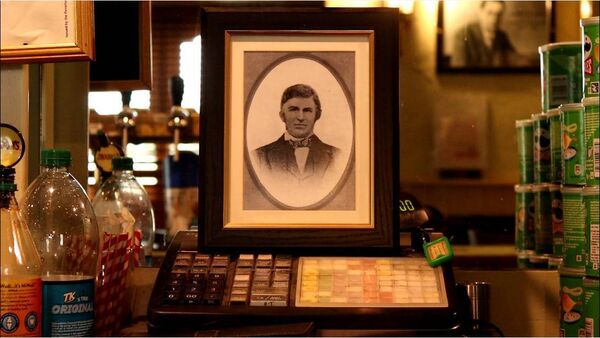
Bill Jack's wife was a woman named Ally Hennebery and Joe revealed that during the time of the famine she risked her own health - and potentially her life - to aid families who were evicted locally.
"She used to take food to them every day and at the time there was cholera and other diseases so she risked her own life bringing food to them," said Joe.
Remembering back to when there was a shop adjoined to the pub, Joe said that even when it came to the papers one had to know the clientele because some would be Fianna Fail and some would be Fine Gael and commented: "You daren't mix up those papers."
Joe is very proud of his family's long association with the bar and what it means to the village and is hopeful that one of his own family will take it over as the fifth generation. There have been some upgrades and extensions made to the premises along the way but it's footprint is that of a building whose walls have echoed the conversations of generations of local families.
During our conversation Joe also revealed another significant aspect to the history of Kilrossanty - whose colours are green and gold like the Kingdom.
"We're the home of the green and gold and as they say we brought the green and gold jersey to the Kingdom," he said.
"Many moons ago it was actually a Kilrossanty man gave them the colours," he added.
"I think it was a Kirwan man and Kerry were going playing and they had no jerseys apparently," he said.
"They had red jerseys available but they wouldn't wear them because of Cork, well that's what I was told, and this man was down there on holidays and had a set of Kilrossanty jerseys with him and that's how it came to be that a Kilrossanty man brought the green and gold to Kerry," he added.
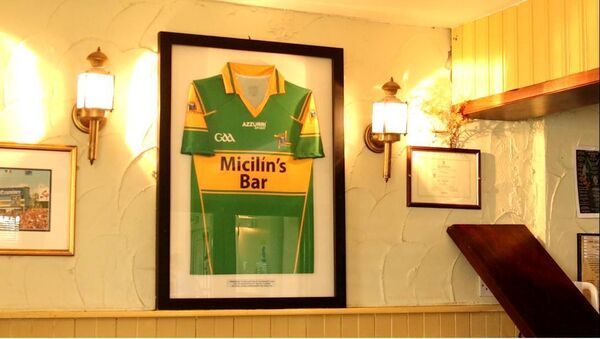
Looking ahead to the forthcoming celebrations Joe said he's looking forward to it and to the community coming together for a happy occasion.
The event celebrations will get under way on Friday, May 30, with happy hour and on Saturday night, May 31, there will be complementary barbecue from 7.30pm to 9pm followed by music with Gally.
Then on Sunday, June 1, there will be music with Woody from 10pm to midnight.
"We're looking forward to next weekend and everyone is welcome," he said.
However, Joe is also looking forward to celebrating another milestone anniversary in five years time: "We may do something else for the 150th, God willing if we're still alive."
